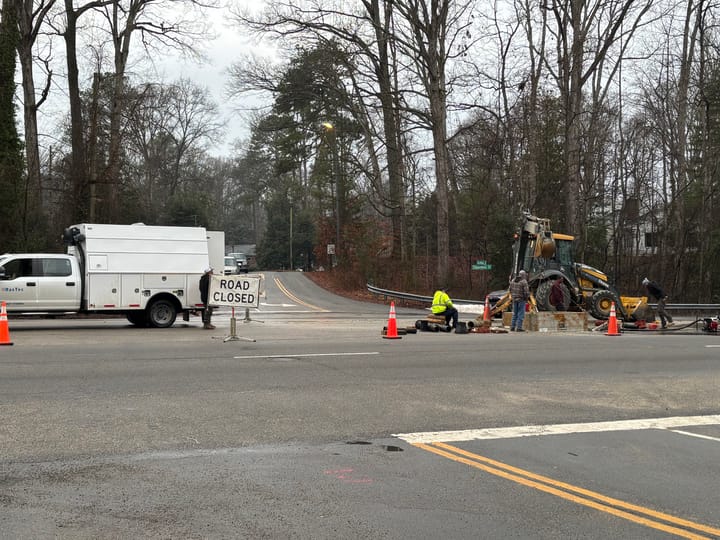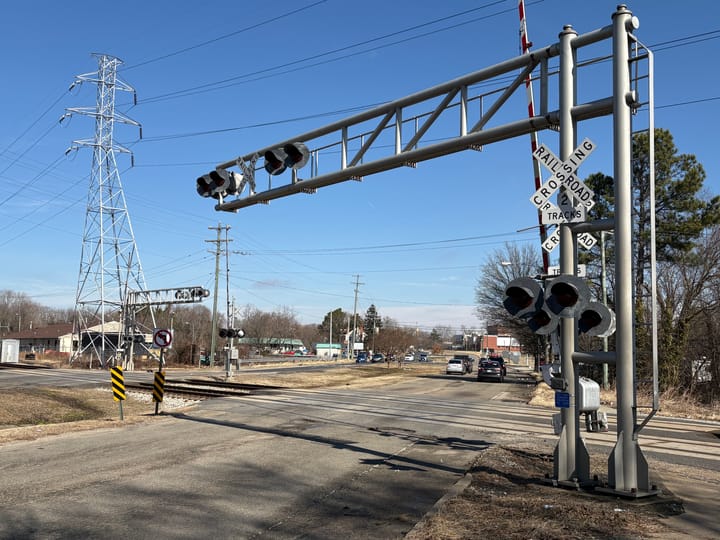
Volunteers who help children through court cases encourage others to join in ‘meaningful’ work
Just west of Richmond, Katy McArthur types at an iron table outside Foxtail Coffee, her rose-gold laptop decked out in “Gilmore Girls” and Taylor Swift stickers. A gold pin reading “Speak up for a child” sparkles from the front of her white cardigan, warding off the morning chill. She’s heading on vacation soon and wants to tie up loose ends — whether for her full-time consulting job or the child she’s currently watching over as a Court-Appointed Special Advocate.
A CASA is the judge’s eyes and ears during child welfare proceedings, which can take a lot of time. In McArthur’s words, it’s “volunteering 2.0.” She takes on one case at a time — sometimes working with a single child for years. CASAs aren’t therapists or counselors. They’re volunteers who observe, gather input and make recommendations in the child’s best interest to judges, attorneys, foster parents and others involved in a case.
A typical day for McArthur might include attending hearings, visiting the child’s home, or checking in with teachers and doctors. Every interaction is logged, compiled into a monthly report, and reviewed by her supervisor before it’s submitted to the judge. CASAs may testify in court depending on the locality, but in Richmond, they don’t.
Confidentiality is a key part of a CASA’s job — so much so that McArthur didn’t discuss the details of her current case at all. It can take a lot of time, but she calls it deeply rewarding.
She first discovered the program while living in San Francisco and noticing a bus ad. She had previous experience working with children and knew that it was a passion of hers. With previous experience working with children and a love for volunteerism inherited from her parents, she signed up after moving to Pittsburgh. She spent several years working with a single child there before returning to her hometown of Richmond, where she immediately signed up again.
“I think that it is the most meaningful volunteer work that you can do,” she said.
The time commitment varies widely — McArthur said she’s spent as few as 10 hours or as much as 40 hours on a case during a month. Volunteers have 40 hours worth of training to back them up, plus a supervisor and a network of other CASAs. They’re matched to a case based on their priorities or specifications — it could involve a sibling group, a teenager or a baby.
Over time, CASAs can bond with the children they look after. McArthur said volunteers are sometimes invited to their child’s outside events, like sports games or award ceremonies.
Even though it’s a time commitment, McArthur said it’s doable even with a full plate. While in Pittsburgh, she was working full-time and pursuing her master’s degree, but she still found it manageable.
“If I know that there’s a problem, and I know that children in foster care likely have experienced abuse or neglect … then I must do something about it,” she said.
When meeting a child, McArthur said she makes sure they know who she is, what she’s doing and why her role is important for them. Since CASAs are volunteers, McArthur has found the child or their family trusts them more readily than officials involved in a case. McArthur said CASAs should be prepared for difficult conversations, but to her, it’s worthwhile — especially since she can positively change the trajectory of a child’s life.
Like other organizations sustained by grants, the National CASA Association lost federal funding under the Trump administration. The Richmond chapter wasn’t impacted — it falls under Greater Richmond SCAN, a nonprofit whose funding primarily comes from donations, and didn’t have any active or pending grants from National CASA.
Sarah-Keel Crews, GRSCAN’s volunteer coordinator, wrote in an email to The Richmonder that these national funding cuts are “extremely concerning for the children” the program serves.
“Bottom line for us right now is that we continue doing the good work that we do and serving the children who depend on us,” Crews wrote in an email.
McArthur said all CASA localities are understaffed, which makes the volunteer work all the more crucial. Currently, 92 Richmond children are without a CASA.
In a world where the news cycle is overwhelming and unceasing, being a CASA, McArthur said, gives her a tangible way to channel her energy toward something good. During times she feels bogged down by the world, she’s reminded of advice her Pittsburgh supervisor once offered up:
“Think about what would happen if you weren’t here.”
Richmond’s CASA will hold a fundraising event at Foxtail Coffee on Monday, July 14, during which a portion of that day’s earnings will go toward the organization.
Contact Reporting Intern Eleanor Shaw at eshaw@richmonder.org. This story has been corrected to reflect the correct spelling of Sarah-Keel Crews' name.






